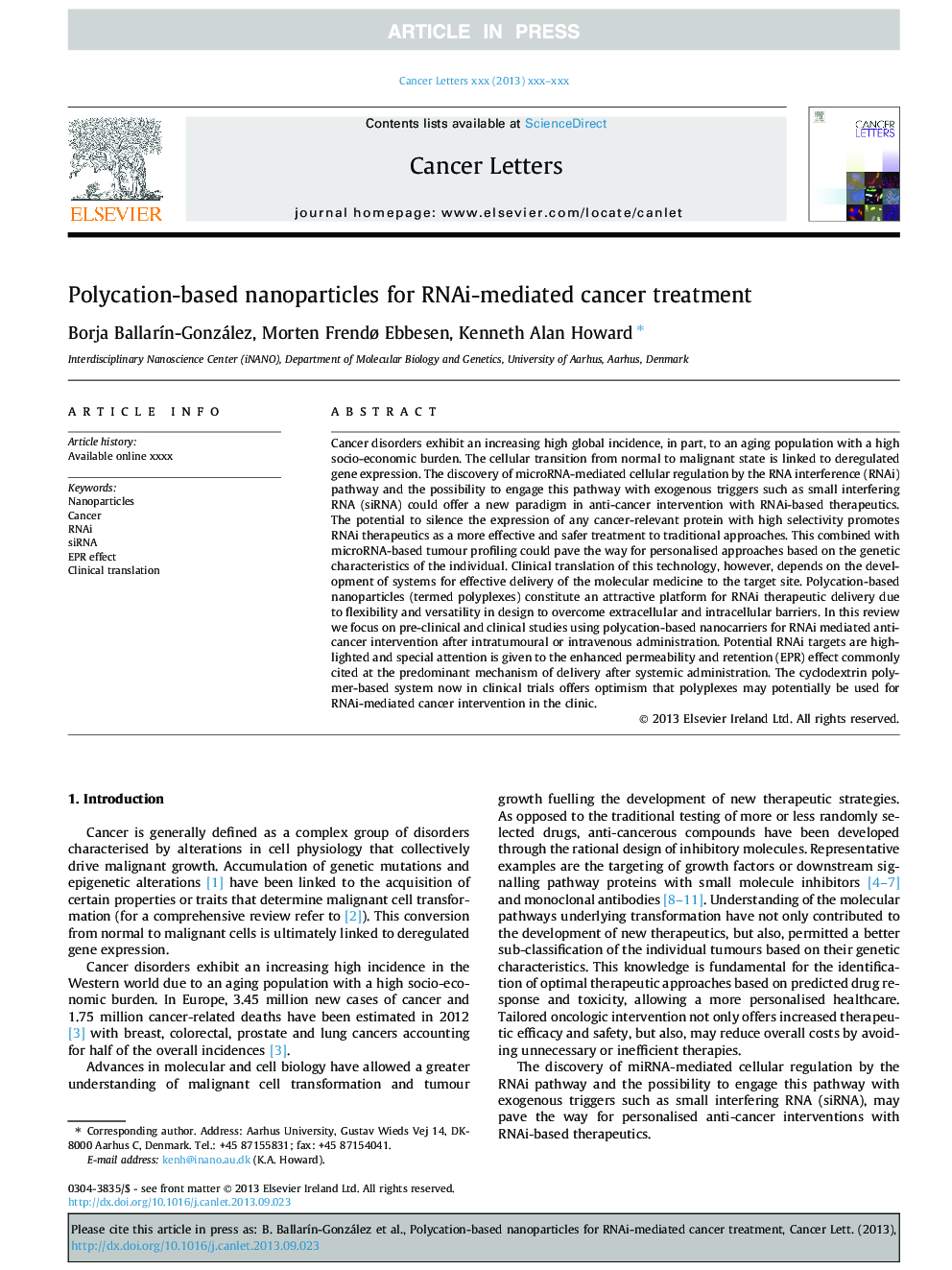| Article ID | Journal | Published Year | Pages | File Type |
|---|---|---|---|---|
| 10899794 | Cancer Letters | 2014 | 15 Pages |
Abstract
Cancer disorders exhibit an increasing high global incidence, in part, to an aging population with a high socio-economic burden. The cellular transition from normal to malignant state is linked to deregulated gene expression. The discovery of microRNA-mediated cellular regulation by the RNA interference (RNAi) pathway and the possibility to engage this pathway with exogenous triggers such as small interfering RNA (siRNA) could offer a new paradigm in anti-cancer intervention with RNAi-based therapeutics. The potential to silence the expression of any cancer-relevant protein with high selectivity promotes RNAi therapeutics as a more effective and safer treatment to traditional approaches. This combined with microRNA-based tumour profiling could pave the way for personalised approaches based on the genetic characteristics of the individual. Clinical translation of this technology, however, depends on the development of systems for effective delivery of the molecular medicine to the target site. Polycation-based nanoparticles (termed polyplexes) constitute an attractive platform for RNAi therapeutic delivery due to flexibility and versatility in design to overcome extracellular and intracellular barriers. In this review we focus on pre-clinical and clinical studies using polycation-based nanocarriers for RNAi mediated anti-cancer intervention after intratumoural or intravenous administration. Potential RNAi targets are highlighted and special attention is given to the enhanced permeability and retention (EPR) effect commonly cited at the predominant mechanism of delivery after systemic administration. The cyclodextrin polymer-based system now in clinical trials offers optimism that polyplexes may potentially be used for RNAi-mediated cancer intervention in the clinic.
Related Topics
Life Sciences
Biochemistry, Genetics and Molecular Biology
Cancer Research
Authors
Borja BallarÃn-González, Morten Frendø Ebbesen, Kenneth Alan Howard,
